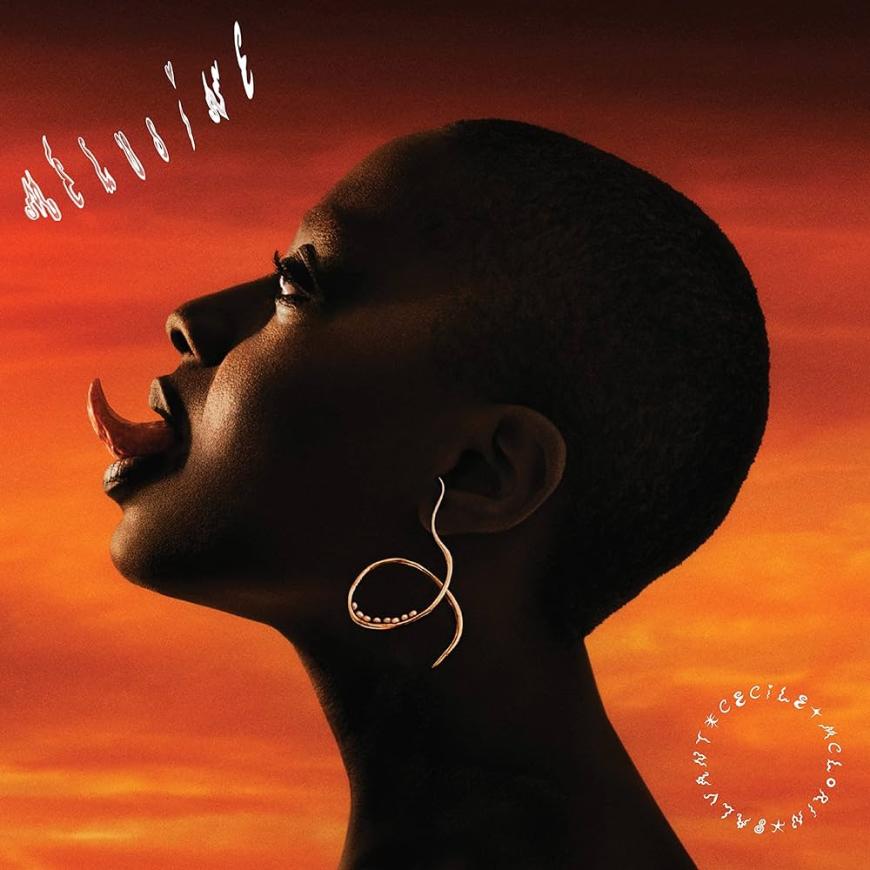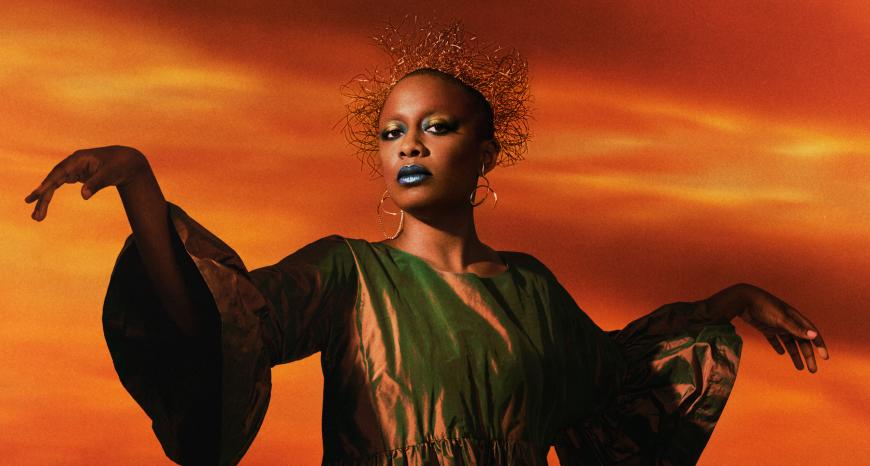
Listening to the music of Cécile McLorin Salvant, you might imagine yourself sitting in a French chateau. The celebrated jazz vocalist has the uncanny ability to transform the ethereal substance of music into a solid but elegant edifice.
Only 34, the MacArthur Fellow and three-time Grammy Award winner has explored the architecture of sound in acclaimed albums and live performances that cross genres and languages. With finely crafted textures and tones, she has built something of a castle to house the cultures and musical traditions of her heritage.
Born and raised in Miami, Salvant’s maternal grandparents were a French white woman and a Black man from Guadeloupe. Salvant’s French mother and Haitian father met in Haiti, and they would enroll their 5-year-old daughter in classical piano studies. Three years later, Salvant joined a children’s choir and then started formal voice lessons as a teenager. The family’s home life was set to an eclectic score that included not only classical but Appalachian, bluegrass, South American folk, Haitian, Caribbean, and Senegalese music, along with pop, rock, R&B, hip-hop, grunge, and always, the magnificent voice of Sarah Vaughan.
Salvant has a bachelor’s degree in French law from the Université Pierre-Mendès-France in Grenoble and studied Baroque music and jazz at the Darius Milhaud Conservatory of Music in Aix-en-Provence.

She arrives at Berkeley’s Zellerbach Hall on Jan. 25 for a concert presented by Cal Performances and featuring music from her latest album, Mélusine. The title refers to a character from 14th-century European folklore. Cursed from childhood to assume the form of a serpent on Saturdays, Mélusine makes her husband vow never to look at her on that day; when he breaks his oath and spies on her, she becomes a dragon and flies away. The album combines originals and interpretations of nine songs dating as far back as the 12th century.
The recording has Salvant singing mostly in French, with a few songs in Occitan, English, and Haitian Kreyòl. Avoiding linear narration, the album cycles through impressionistic renderings of mysterious and otherworldly tales but nevertheless is grounded in universal themes like birth, death, betrayal, love, loss, grief, and more.
During the busy holiday weeks and between tour stops, Salvant corresponded with SF Classical Voice via email to offer insights into the new album and her work in general. This conversation has been edited for clarity and concision.
In what ways did the four languages on the album provide opportunities to explore different aspects of your singing voice?
My singing comes from my speaking, [so] any choice I make is based on how I would speak the song. My priority is getting the lyrics across — not only making them understandable but for the listener to feel what is going on. Any choice, like extending a note, breaking a line, comes from that and, like in speech, is very intuitive and can change.
Your collaborators on Mélusine, such as the pianist on the song “Doudou” and the theorbo player on the title track, seem to draw out specific aspects of your voice. How would you describe that relationship?
I think in [“Doudou”] I’m playing with my phrasing against what the pianist is doing and trying to keep everything feeling loose and free. The dynamics are built into the way the melody is written, which I wrote according to the lyrics. So really it all gets back to what the text actually means.
The challenge [in “Mélusine”] was to divorce myself from my habit of hearing the theorbo in a Baroque music context, which was where I always heard it in my conservatory in Aix-en-Provence. I tried to stay true to the phrasing I would have in any other context and almost to ignore my notions of what voice and theorbo usually sound [like] together.
Tell me about the song “Est-ce ainsi que les hommes vivent?”
[The text] is an excerpt of a poem written by the great Louis Aragon which, after years of singing it, still retains some of its mystery. The first time I sang it, I didn’t know anything of its context. I understood parts of it but not all of it. I have since read the entire poem many times, pencil in hand, trying to get a deeper understanding of it.
When selecting songs for an album or concert, how do you approach blending and balancing the different textures, genres, and technical and artistic demands of the music?
Texture and contrast are things I’m naturally attracted to. At this point they are inevitable whenever I am working on anything. This album was made with one goal in mind, which was to assemble songs that could in some way evoke the story of Mélusine. The order had to follow that story, regardless of genre, tempo, keys. The story has continuity, momentum, and drama built in.

When giving a live concert, you have more flexibility in arranging the set list, compared to the fixed form of an album. And people often listen to albums only in sections or single songs. Did you think about this when creating Mélusine, which seems to be intended as an integrated experience, with a story arc across the whole album?
I feel that these days an album is often listened to in fragments, shuffled, or just one track is extracted in a playlist among other music from different artists and eras. The story arc on this album is that of Mélusine, the woman who turns into a half-snake creature on Saturday and hides this from her husband. But I am realistic that many people won’t listen to the album in its entirety or take a look at the accompanying artwork I made very explicitly showing how each track goes with a different chapter of the story. So I tried to make the tracks little stories within themselves.
Are there any musical areas you’ve not yet explored but hope to in 2024? What about your visual art?
I want to write a musical! I want to write a long-form story with multiple singers. [And by next year] hopefully the animated feature-length movie I’m working on will be close to being finished.
The last time we spoke, you said your music tells secrets. I remember wishing we had time for you to expand on that idea. Will you please open that up a bit here?
The process of telling or receiving a secret is one of trust. It’s also one that has a certain illicit quality to it. One is sharing something that shouldn’t be shared. It’s very intimate and exciting.



